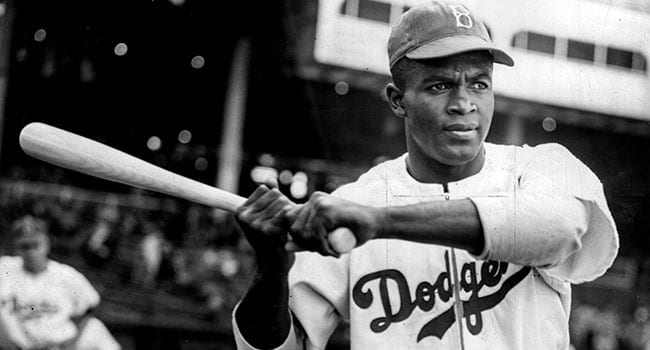 America is clearly broken.
America is clearly broken.
We Americans have struggled from the beginning of the nation to live up to our ideals.
From our Pledge of Allegiance: “… with liberty and justice for all. …”
From our Declaration of Independence: “We hold these truths to be self-evident, that all men are created equal. …”
From our Constitution: To “establish justice.”
At various times in our lives, we’ve all felt the pain of injustice, no matter our race, ethnicity or gender. But black Americans have long had the burden of having to deal with the most injustice.
At one time, black Americans were counted as only three-fifths of a person in the American Constitution. That abomination was removed when the 13th amendment abolished slavery. A big step forward occurred when the 14th amendment promised “equal protection under the laws.” But then Jim Crow laws popped up and they usurped the 14th amendment’s guarantee of equality and prevented blacks from voting.
Yes, in some ways things are better today. But we remain far from a country that actually lives the words “justice for all.”
According to a study in the Proceedings of the National Academy of Sciences, a black man is 2.5 times more likely to be killed by a policeman as a white man.
We have an ugly history. In addition to George Floyd, who was murdered by a rogue cop last week (a cop who had 18 prior complaints on his record), the list of unjust killings of black Americans is long.
From Emmitt Till (and, of course, way before him), to Eric Garner, Breonna Taylor, Ahmaud Arbery, Philando Castile, Tamir Rice, Walter Scott, Botham Jean, etc. And on it goes …
“What was your first reaction when you saw the video of the white cop kneeling on George Floyd’s neck while Floyd croaked, ‘I can’t breathe’” asked basketball Hall-of-Famer Kareem Abdul Jabbar in an opinion piece for the Los Angeles Times.
“If you’re white, you probably muttered a horrified, “Oh, my God” while shaking your head at the cruel injustice. If you’re black, you probably leapt to your feet, cursed, maybe threw something (certainly wanted to throw something), while shouting, “Not @#$%! again!”
Anger and deep frustration are appropriate responses. Setting fires, breaking windows and looting aren’t. And the vast majority of white Americans and black Americans don’t condone violent backlash of any type.
That said, as Emory University professor Carol Anderson has pointed out in discussing the fires in multiple cities in recent days, we can’t lose sight of what provided the kindling and led to the spark. Without the kindling, there isn’t a fire.
Martin Luther King Jr. spoke eloquently, and often, about the importance of civil rights protesters doing so peacefully. And for the most part they did. But he also noted that when protests aren’t heard and nothing is done, emotions can boil over.
“I think America must see that riots do not develop out of thin air,” said King in 1968. “Certain conditions continue to exist in our society which must be condemned as vigorously as we condemn riots. In the final analysis, a riot is the language of the unheard.”
So where do we go from here?
A good place to start is with Jackie Robinson, and the impact he had on baseball and society.
“Jackie Robinson made my success possible,” said King. “Without him, I would never have been able to do what I did.” King also said Robinson was “a sit-inner before the sit-ins, a freedom rider before the Freedom Rides.”
We certainly need modern-day Jackie Robinsons and Kings. But we need an awful lot of Branch Rickeys and Pee Wee Reeses, too.
Rickey and Reese were white men who helped make Robinson’s effort to integrate Major League Baseball successful. Rickey was the Brooklyn Dodgers’ powerful executive who signed Robinson and Reese was the Dodger teammate who publicly displayed his acceptance of, and affection for, Robinson.
Golden State Warriors coach Steve Kerr might have said it best when it comes to the need for white Americans to step up.
“[Even] though I’ve tried, I haven’t done enough, and I don’t think any of us have done enough,” said Kerr this past week. “When I say us, I mean white people. We haven’t done enough. It’s just the truth. If we had, this sort of thing wouldn’t be happening.”
We need white people in positions of power today who can lead efforts to change racist and unjust institutional policies. Likewise, the country needs whites like Reese, who aren’t in positions of power but who have influence in their individual spheres, to speak out and take action against racism and social injustice whenever, and wherever, they see it.
Sports figures have a tremendous platform in this country. More of them need to use it in the cause of social justice. Silence in the face of what’s going on today is in many ways complicit.
Those who want athletes to “shut up and dribble” and “stick to sports” don’t want to hear or see anything that makes them uncomfortable or takes away from their viewing pleasure. They’re privileged in that they don’t have to deal with the subtle and overt racism that black Americans do on a daily basis.
We truly need “a commitment to the oneness” in the United States. It has to become a “we” nation instead of an “us” and “them” nation.
I’ll give Jackie Robinson the last word:
“The right of every American to first-class citizenship is the most important issue of our time. We ask for nothing special. We ask only to be permitted to live as you live, and as our nation’s Constitution provides.”
Ken Reed is sports policy director for League of Fans (leagueoffans.org), a sports reform project. He is the author of The Sports Reformers, Ego vs. Soul in Sports, and How We Can Save Sports.
The views, opinions and positions expressed by columnists and contributors are the author’s alone. They do not inherently or expressly reflect the views, opinions and/or positions of our publication.


